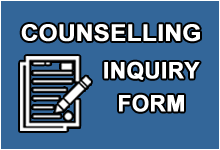Schizophrenia
What is schizophrenia?
 People with schizophrenia have a sense of reality that is very different from others around them–they see, hear, and feel things that others do not. To the person suffering from schizophrenia the hallucinations and delusions they experience are real. This leads to behaviors that appear strange to others. In addition to affecting behavior, Schizophrenia can also result in irrational ways of speaking or speech that appears jumbled.
People with schizophrenia have a sense of reality that is very different from others around them–they see, hear, and feel things that others do not. To the person suffering from schizophrenia the hallucinations and delusions they experience are real. This leads to behaviors that appear strange to others. In addition to affecting behavior, Schizophrenia can also result in irrational ways of speaking or speech that appears jumbled.
Schizophenia affects about 1.1 % of people over 18 years of age or about 280,000 people in Canada.
The onset of Schizophenia can be gradual in some individuals whereas in others the onset can be very suddenly. Although schizophrenia can be a debilitating mental illness it is good to know that after 1o years 50% of people either completely recover or enjoy much improved lives:
After 10 years, of the people diagnosed with schizophrenia:
- 25% Completely Recover
- 25% Much Improved, relatively independent
- 25% Improved, but require extensive support network
- 15% Hospitalized, unimproved
- 10% Dead (mostly suicide)
(Source: Surviving Schizophrenia)
Schizophrenia often impacts a person’s ability to maintain social relationships, hold down a job, or engage in activities they previously found pleasurable. However, the person suffering from schizophenia is often not aware of the changes to his or her behavior.
Warnings: What are the signs to look out for?
Early signs of a change in everyday functioning may occur in areas such as relationships, work or educational involvements. These might include increased suspiciousness, irritability, anger, tension, or depression. As with most illnesses, the best outcome results from early detection and intervention.
Schizophrenia may include the following symptoms:
- Hallucinations: This involves experiencing sensations that other people do not, such as hearing false information or directions to act in certain ways. Hallucinations may trigger distress, or erratic behaviour.
- Delusions: These are incorrect beliefs, such as misinterpreting events despite contrary, logical evidence. For example, some people believe others are persecuting them, or can read or control their mind. They may also think they have special powers.
- Disorganisation: This involves struggling to think, speak or behave in a planned and logical manner. Disorganisation can also affect attention, memory and feelings.
Severe symptoms can lead to hospitalisation, despite the best attempts of family, friends, and health professionals to provide external care.
What causes schizophrenia?
Schizophrenia is a complex condition and no single cause has been identified. There are number of contributing factors, such as:
- Genetics: A history of the disorder in the family;
- Environmental and social stresses, such as very negative emotional relationships; and
- Lifestyle factors, such as drug abuse



















